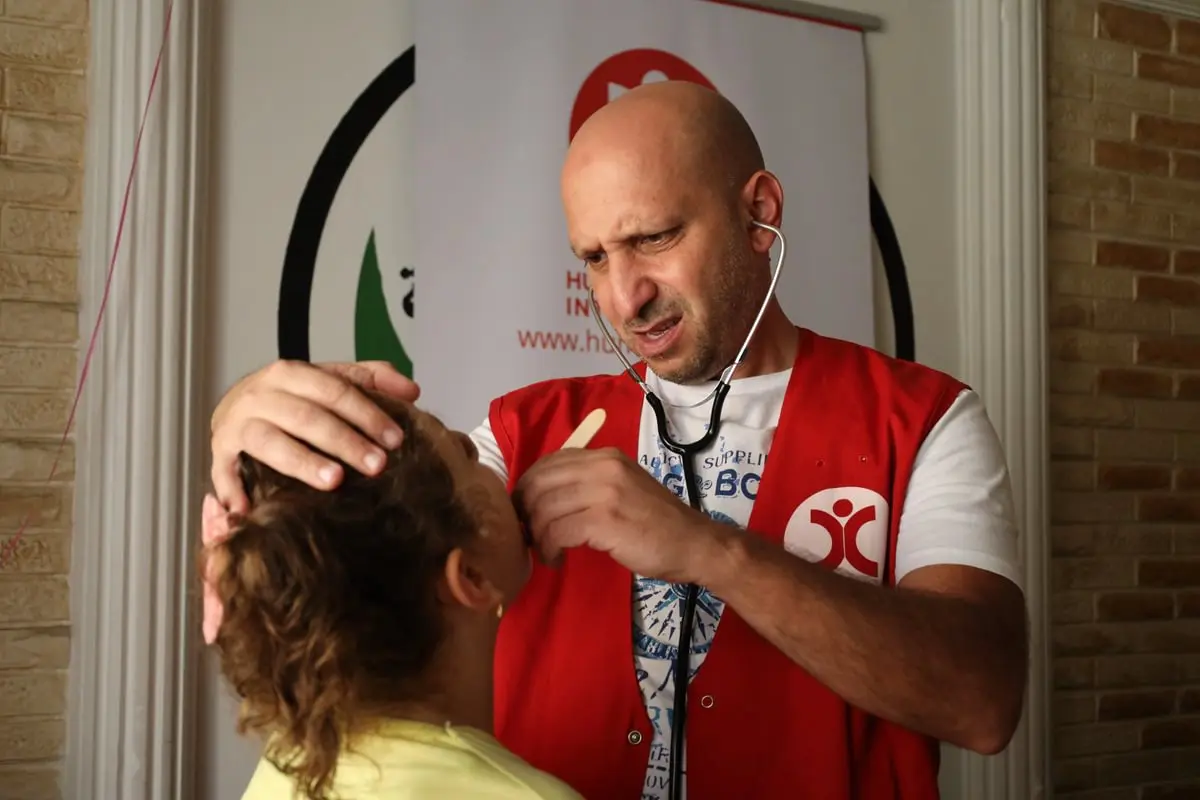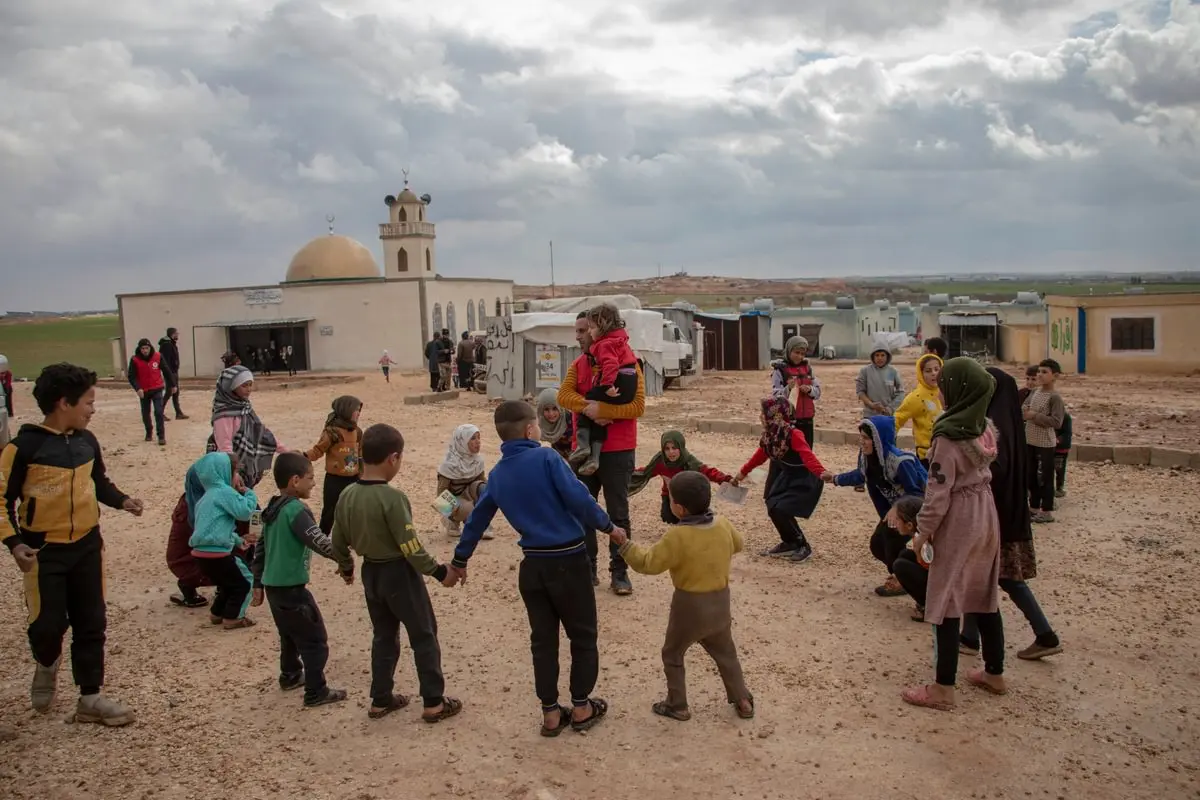During the month of Ramadan, this Ummah received one of its greatest blessings – The Holy Quran. Ramadan gives us a beautiful opportunity to reconnect with the Quran – an amazing source of guidance, light, and wisdom!
Its virtue stands above all other books in the same way that Allah ﷻ stands above His creation! Whoever recites it will find it interceding for them on the Day of Judgment as our beloved Prophet ﷺ stated in Sahih Muslim.
People in earlier generations always had a close relationship with the Quran. They read it often, repeating its verses and following its commands. They unlocked every hidden gem within its pages, not only during Ramadan but all year long!
As Muslims living in the West, how can we also benefit from the wisdom found within this divine book?
A great start would be knowing the correct way to engage with the Quran. So, with Ramadan right around the corner, we thought we’d put together a short blog highlighting the etiquettes one should uphold in order to give this book its fair right.
We hope that this advice will be useful in strengthening your connection with the Quran as we come closer to the month in which it was first revealed.

The first thing you should bare in mind is that you are reciting the Direct Word of God. Imagine it as a conversation between yourself and your Creator. It is He who revealed these words and it is He who preserved them for all these years.
He is the creator of good and bad deeds and He alone guides. Were it not for His kindness, He wouldn’t have given you the ability to recite His words.
With this in mind, utter and engage these words as if Allah ﷻ is right before your eyes. Even though you may not be able to see Him. Always remember that He watches over every action of yours.
It is paramount that you are in a clean and pure state when reciting the Quran. Although not being in Wudu when reciting the Quran from memory is allowed, it is still considered better etiquette to be in a state of ablution. Reciting directly from a Mushaf (physical copy) however, requires you to be in a state of Wudu.
Scholars are divided on the issue of reciting from a mobile phone. Some permit it without wudu, while others require a state of ritual purity. If you’re not in wudu and decide to recite anyway, be sure that your fingers don’t come into contact with the words on screen as an extra precautionary measure.
You should make sure that your clothes and environment are also clean. This is in order to honor and revere the nobility of this book.
Top Tip: Set aside special garments and a designated prayer space for all of your worship including reciting the Quran.
Remembering Allah ﷻ in all of our various states is encouraged – except of course when in the bathroom, etc.
It is permissible to recite the Quran whilst sitting, standing, or even lying down.
This can be seen in Surah Al-Imran in which Allah ﷻ Says: “And those who remember Allah standing, sitting and upon their sides.”
We also find from the life of the Prophet ﷺ that he would recite the Quran in different states. Our Mother ‘Aisha narrates in a Hadith that the Prophet ﷺ would “recite the Quran whilst resting his head on my lap.” (Bukhari)
The best position however, is to be sitting down facing the Qibla, whilst remaining in a state of tranquillity and awe before your Lord. It is a sunnah of the Prophet ﷺ to face the Qiblah whenever sitting and he said, “the best of gatherings are those in which the Qiblah is faced.”
Okay, so now you and your environment are clean. You’re facing the Qiblah. And you’ve brought to heart the Grandeur of the One whose words you’re reciting.
Now before you actually start reciting, you need to remember three things.
The first one is optional; however, being a sunnah, it shouldn’t be neglected or disregarded so easily.
Before you start reciting the Quran with your tongue, it’s recommended that you purify your mouth. This is done by using the Miswaak. The Miswaak is a tooth-cleaning stick made from arak wood and is an emphasized sunnah of the Prophet Muhammad ﷺ. The Prophet ﷺ would use it when making ablution, before praying, before and after sleeping, when entering and exiting the Masjid, and before reciting the Quran. He also used it in many other scenarios throughout his day, which highlights its importance.
He said about the Miswaak in an authentic Hadith: “The Siwak is purifying for the mouth and pleasing to the Lord.” (Ahmad)
You can purchase a Miswaak at your local Islamic bookshop.
They also make a perfect gift idea!
It is highly recommended to recite the T’awwudh before beginning the recitation of the Quran.
The T’awwudh is as follows:
اعوذ باللہ من الشیطن الرجیم
A`udhu billahi minash-shaytanir-rajim
I seek refuge in Allah from Shaitan, the accursed one.
Muslims recite the T’awwudh before beginning any task in order to protect themselves from the influence of Shaytaan. It is especially encouraged to utter the T’awwudh before reciting the Quran.
Allah ﷻ commands us to do this in the Quran itself:
فَإِذَا قَرَأْتَ ٱلْقُرْءَانَ فَٱسْتَعِذْ بِٱللَّهِ مِنَ ٱلشَّيْطَـٰنِ ٱلرَّجِيمِ
“So when you recite the Qur’an, seek refuge with Allah from Shaytaan, the accursed one.”
It is also important to recite the Basmalah every time you start a new Surah (chapter). This excludes the ninth chapter, Surah at-Tawbah.
The Basmalah is as follows:
بسم الله الرحمن الرحيم
Bismillahir Rahmanir Raheem
In the Name of Allah the Beneficent the Merciful
Reciting the Basmalah acts as a differentiation between each chapter. It is also a means of increasing Barakah (blessing) before beginning this great act of worship.
So there you have it. A concise guide on the proper Aadaab or etiquette when engaging with the Book of Allah ﷻ.
We sincerely hope this guide has been a useful resource to you, inspiring and motivating you to read the Quran more often. If so, be sure to share it with your loved ones.
Don’t forget to explore the rest of our website as well, so that you can gain insight into how we are impacting lives and how you too can join us in making a difference globally.
Start reciting today and let your relationship with the Quran reach its peak during Ramadan – after all, if there ever were a perfect month to reset this bond of faith…it would be now!












Human Concern International is the oldest Muslim relief organization in Canada, fighting poverty for over 40 years. We are a registered charity with the CRA. Charitable Registration No. 107497125 RR 0001